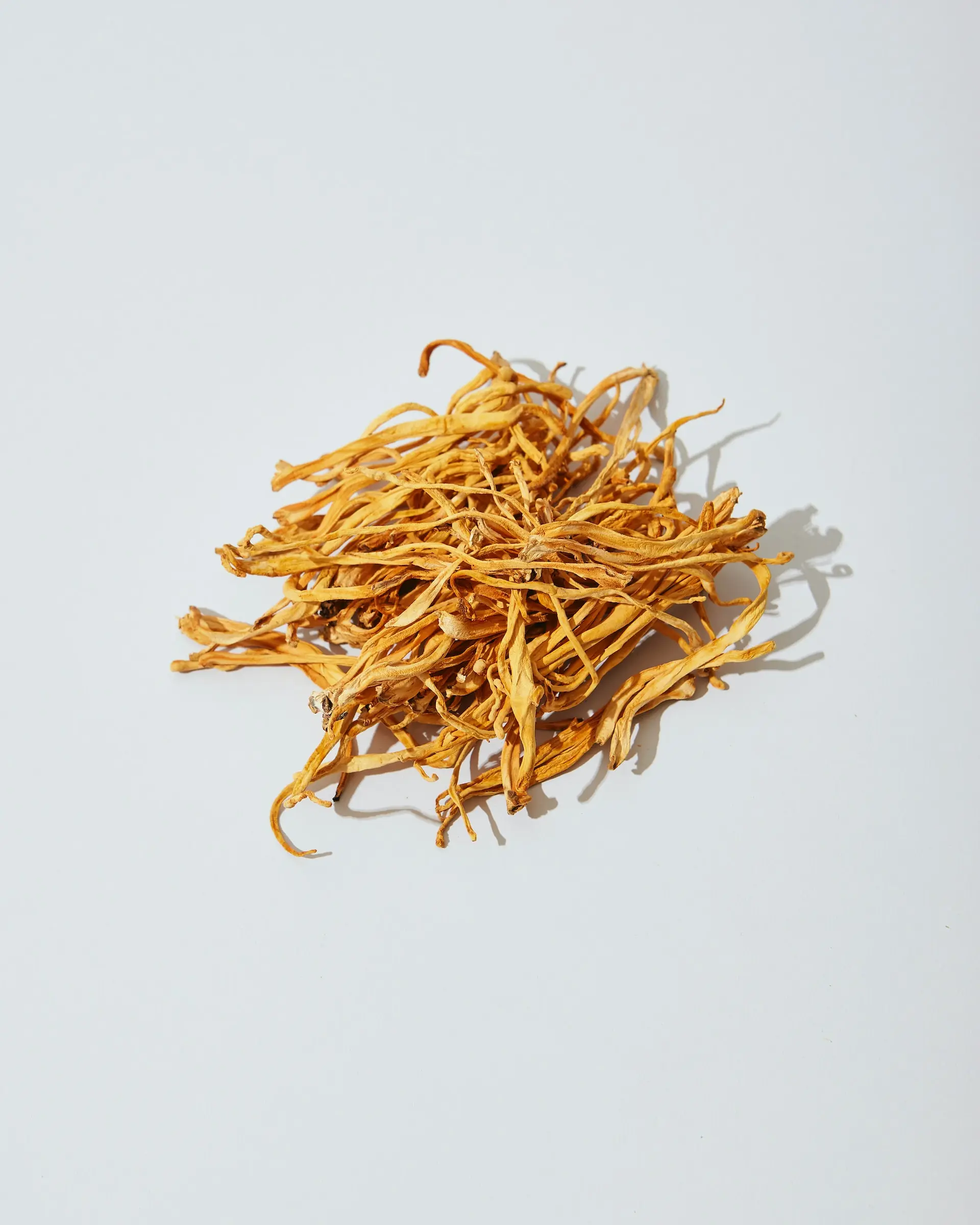Cordyceps
What is Cordyceps?
Cordyceps is a genus of parasitic fungi that has garnered attention for its potential health benefits. Belonging to the Ascomycota phylum, Cordyceps species are widely known for their unique life cycle, which involves infecting and consuming insects. Among the numerous species, Cordyceps sinensis (now reclassified as Ophiocordyceps sinensis) is the most well-known and extensively studied due to its traditional use in Chinese and Tibetan medicine.
Where does Cordyceps come from?
Cordyceps primarily thrives in high-altitude regions of the Himalayas, Tibetan Plateau, and the mountainous regions of China, Nepal, and Bhutan. It grows on the larvae of insects, particularly caterpillars, eventually replacing the host's tissue with fungal matter. In recent years, due to growing demand, commercial cultivation of Cordyceps on substrates like rice and barley has become increasingly popular, making it more accessible and sustainable.
What are the effects of Cordyceps?
Cognitive
- Enhances focus and mental clarity
- Reduces stress and anxiety
- Supports overall brain function
Physical
- Boosts energy and stamina
- Supports immune system function
- Improves athletic performance
How to use Cordyceps?
Cordyceps is available in various forms, including capsules, tablets, powders, and liquid extracts. You can consume it as a dietary supplement or add it to foods and beverages like smoothies, teas, and soups.
How much Cordyceps to use?
When trying out new supplements it is wise to start with a lower dose and–depending on the experienced effects–increase or decrease the dosage accordingly
The recommended dosage of Cordyceps varies depending on individual needs and the specific product. Generally, a daily dose of 500 mg to 1500 mg is considered safe for most adults. It's best to start with a lower dose and gradually increase it as needed, while monitoring your body's response. Always consult with a healthcare professional before incorporating Cordyceps into your routine.
What are the side effects of Cordyceps?
Cordyceps is generally considered safe for most individuals when used in moderate amounts. However, some people may experience mild side effects like gastrointestinal discomfort, nausea, and diarrhea. If you notice any adverse reactions, stop using Cordyceps and consult with a healthcare professional.
Interactions of Cordyceps
Most nootropics are relatively safe to use on their own. Combining them with other substances may cause them to suddenly become dangerous or life-threatening.
Cordyceps may interact with certain medications or have contraindications for individuals with specific medical conditions. It's essential to consult with a healthcare professional before using Cordyceps if you are taking medications, especially immunosuppressive drugs, anticoagulants, or antidiabetic agents, or if you have an autoimmune disorder or a bleeding disorder.
| Name | Cordyceps |
| Other names | Cordyceps sinensis, Ophiocordyceps sinensis |
| Effects | Energy, Anxiety Reducing |
| Dosage | 500 ~ 1000 mg Low to medium dosage 500 1000 1500 |
